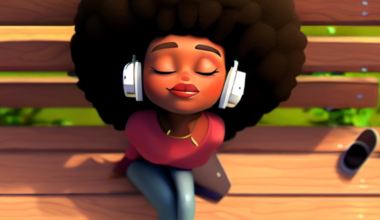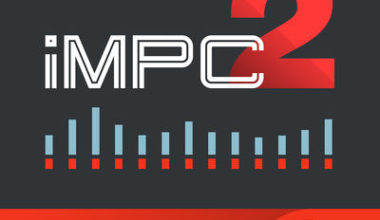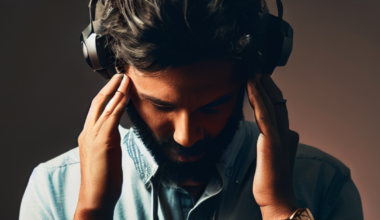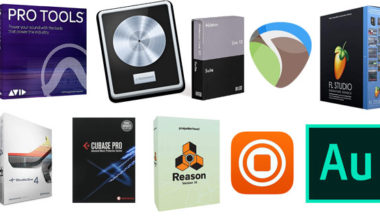
Are you a musician with a knack for creating catchy tunes? Or perhaps you’re a songwriter with a treasure trove of tracks that are just waiting to be heard? If so, it’s time to tune into a new rhythm and explore the world of music licensing.
Music licensing is like the secret melody that plays in the background of the digital world. It’s the tune you hum along to in a commercial, the jingle that gets stuck in your head from a YouTube video, or the instrumental piece that sets the mood in a corporate training video.
But did you know that these pieces of music could be your ticket to a steady income? Yes, you heard that right! Your creativity could be the key to unlocking a new revenue stream.
In this smart, fun, and straightforward guide, we’ll explore the exciting world of music licensing. We’ll hit all the right notes, from understanding what music licensing is, to the different paths you can take, and how to make money from it.
So, whether you’re a seasoned musician or a budding songwriter, this guide is for you. Let’s dive in and explore how you can make your music work for you. Let’s explore how you can make money with music licensing.
The Four Paths to Music Licensing Success
Navigating the world of music licensing can feel like learning a new musical instrument. It’s a bit tricky at first, but once you get the hang of it, the melody starts to flow. To help you hit the right notes, here are the four main paths you can take to monetize your music through licensing:
Direct to Music Supervisors: The Solo Path For Music Licensing
Going direct to music supervisors is like embarking on a solo career in the music industry. It’s a path that requires you to wear many hats and take charge of your own success. Let’s delve deeper into what this path entails.
Music supervisors are the gatekeepers of the music that gets used in media. They are responsible for selecting and negotiating the rights for music used in films, TV shows, commercials, video games, and other media formats. They’re always on the lookout for the perfect track to fit a scene or evoke a specific emotion.
When you go direct to music supervisors, you’re essentially bypassing music libraries and other intermediaries. You’re taking your music straight to the decision-makers. This approach requires a proactive mindset, excellent networking skills, and a detailed understanding of your music’s metadata.
Here’s what you need to know:
Understanding Sync and Master Licenses: Sync licenses and master licenses are the permissions needed to use your music in various media formats. A sync license gives the licensee the right to use your composition, while a master license gives them the right to use your recording of that composition. Understanding these licenses is crucial when negotiating deals with music supervisors.
Being Prompt at Responding to Requests: Music supervisors often work on tight deadlines. Being prompt at responding to their requests can make you stand out and increase your chances of getting your music placed.
Building Personal Relationships: Networking is key in the music industry. Building personal relationships with music supervisors can open doors for your music. Attend industry events, join online communities, and don’t be afraid to reach out and introduce yourself.
Marketing Your Music: Going direct to music supervisors requires you to market your own music. This means creating a professional website, having a well-organized catalog of your music, and being active on social media. Showcase your music in a way that makes it easy for music supervisors to find and listen to your tracks.
Going direct to music supervisors is not for everyone. It requires a lot of work and dedication. But if you’re willing to put in the effort, it can be a rewarding path that gives you more control over where and how your music is used.
Since its initial release in 2019, my book (which charted at #1 on Amazon in the music business category) has served as a practical guide teaching thousands of music producers and beatmakers a strategic system to get your music direct to music supervisors leveraging digital marketing and AI tools.
Exclusive Music Libraries: The Managed Path
Exclusive Music Libraries are like having a manager for your music. They handle the administrative tasks, negotiation, and contracts related to your music, allowing you to focus on what you do best – creating music. Let’s explore this path in more detail.
Exclusive Music Libraries are platforms that specialize in curating a catalog of music for use in various media formats. They work closely with music supervisors, ad agencies, and other media professionals who are looking for music for their projects.
When you sign up with an Exclusive Music Library, you’re giving them the exclusive rights to license your music for a specified term. Here’s what you need to know:
Signing Your Songs: When you sign your songs to an Exclusive Music Library, you’re giving them the exclusive rights to license your music. This means that you can’t license the same songs through other libraries or platforms during the term of the agreement.
Understanding the Terms: Exclusive Music Libraries handle the administration, negotiation, and contracts related to your music. They may take all or a percentage of the publishing for your songs and a percentage of all licensing fees. Make sure you understand the terms of the agreement before you sign.
Focusing on Creating Music: One of the benefits of signing with an Exclusive Music Library is that it allows you to focus more on creating music. The library takes care of the business side of things, freeing up your time and energy to create more music.
Building a Portfolio: Exclusive Music Libraries often have high standards for the music they accept. This means that getting your music accepted by a reputable library can be a great way to build your portfolio and gain credibility in the industry.
Signing with an Exclusive Music Library is a big decision that should not be taken lightly. It’s important to do your research, understand the terms of the agreement, and make sure that it’s the right fit for you and your music. But if you’re looking for a managed path to music licensing, an Exclusive Music Library could be the right choice for you.
Non-Exclusive Music Libraries: The Flexible Path
Non-Exclusive Music Libraries, also known as ‘re-titling deals,’ offer a more flexible approach to music licensing. They allow you to retain full ownership of your songs under the original titles, giving you the freedom to license your music through multiple libraries. Let’s delve deeper into this path.
Non-Exclusive Music Libraries are platforms that curate a diverse catalog of music for use in various media formats. They work with music supervisors, ad agencies, and other media professionals who are looking for music for their projects.
When you sign up with a Non-Exclusive Music Library, you’re giving them the non-exclusive rights to license your music. This means you can also license the same songs through other libraries or platforms. Here’s what you need to know:
Retaining Ownership: One of the main benefits of Non-Exclusive Music Libraries is that they allow you to retain full ownership of your songs under the original titles. This means you have more control over your music and can license it through multiple libraries.
Understanding Re-titling: Non-Exclusive Music Libraries often use a practice known as ‘re-titling.’ This means they assign a new title to your song when they license it, allowing them to track and collect royalties for the placements they secure. However, this approach has fallen out of favor due to issues with music recognition technology.
Balancing Opportunities: Non-Exclusive Music Libraries can be a good option if you want to maximize your opportunities. Since you can license your music through multiple libraries, you can potentially reach a wider audience. However, it’s important to balance this with the risk of overexposure and potential conflicts between libraries.
Doing Your Research: As with any business decision, it’s important to do your research before signing with a Non-Exclusive Music Library. Make sure you understand their terms, their reputation in the industry, and how they track and pay royalties.
Non-Exclusive Music Libraries offer a flexible path to music licensing. They can be a good option for musicians who want to retain more control over their music and maximize their opportunities. However, it’s important to understand the pros and cons and make an informed decision that’s right for you and your music.
Royalty Free Libraries: The Open Mic Night Path
Royalty Free Libraries are like the open mic nights of the music licensing world. They provide a platform for musicians to get their music out there, often serving as a stepping stone to bigger opportunities. Let’s explore this path in more detail.
Royalty Free Libraries are platforms that supply music to projects often operating on lower budgets. These could include independent films, YouTube videos, podcasts, and more. When you sign up with a Royalty Free Library, you’re giving them the right to license your music without the need to pay you royalties for each use.
Here’s what you need to know:
No Backend Royalties: One of the main characteristics of Royalty Free Libraries is that they don’t pay backend royalties. This means that you won’t receive additional payments each time your music is used. Instead, you receive an upfront fee when your music is licensed.
Great for Beginners: If you’re new to the music licensing industry, Royalty Free Libraries can be a great place to start. They often have less stringent acceptance criteria, allowing you to gain experience and start building a reputation.
Volume is Key: Since the income from Royalty Free Libraries comes from upfront licensing fees rather than backend royalties, volume is key. The more tracks you have in your catalog, the more opportunities you have to earn income.
Understanding the Terms: As with any music licensing deal, it’s important to understand the terms before you sign up with a Royalty Free Library. Make sure you understand how much you’ll be paid, how your music will be used, and what rights you’re giving away.
Royalty Free Libraries offer a unique path to music licensing. While they may not provide the same income potential as other paths, they can be a great way to get your foot in the door and start your music licensing journey. Just remember to do your research, understand the terms, and make sure it’s the right fit for you and your music.
Making Money with Music Licensing: The How-To
Now that we’ve explored the different paths to music licensing, let’s dive into the nitty-gritty of how to actually make money from it. Here’s a step-by-step guide to help you hit the high notes in your music licensing journey:
Create Commercially Viable Music: The Composer’s Canvas
Creating commercially viable music is the first step to making money with music licensing. It’s about composing music that not only resonates with listeners but also fits seamlessly into a variety of media projects. Let’s delve deeper into this crucial step.
Commercially viable music is music that has broad appeal. It’s music that can enhance a scene in a film, add energy to a commercial, or set the mood in a YouTube video. It’s music that tells a story, evokes emotion, and complements the visual content it’s paired with.
Here’s what you need to know:
Understand the Market: To create commercially viable music, you need to understand the market. Pay attention to the style of music that’s popular at the moment and the types of instruments being used. Listen to the music used in commercials, films, and other media to get a sense of what’s in demand.
Versatility is Key: Commercially viable music is versatile. It’s music that can fit into a variety of settings and moods. So, don’t limit yourself to one genre or style. Experiment with different sounds, instruments, and compositions to create a diverse portfolio of tracks.
Quality Over Quantity: While it’s important to have a large catalog of music, quality should never be compromised. High-quality music is more likely to get licensed and can help you build a strong reputation in the industry.
Stay True to Your Sound: While it’s important to create music that’s commercially viable, it’s also important to stay true to your sound. Your unique musical style is what sets you apart from other musicians. So, while you should strive to create music that appeals to a broad audience, don’t lose sight of your own artistic voice.
Creating commercially viable music is a balancing act. It’s about understanding the market, being versatile, maintaining high quality, and staying true to your sound. It’s about composing music that not only resonates with listeners but also fits seamlessly into a variety of media projects. So, tune up your instruments, flex your creative muscles, and start composing your way to music licensing success.
Sell Your Songs on the Right Platforms: The Digital Stage
Once you’ve created your music, the next step is to sell it. But not just anywhere. Choosing the right platform to sell your songs is crucial. It’s like choosing the right stage to perform on. Let’s explore this step in more detail.
Selling your songs on the right platforms means placing your music where it has the best chance of being discovered by potential buyers. These could be music supervisors, ad agencies, filmmakers, or other media professionals looking for music for their projects.
Here’s what you need to know:
Choose Platforms with High Traffic: Platforms listed in our top sync licensing music libraries directory are popular among media professionals looking for music. They have high traffic and a large group of buyers, increasing your chances of making a sale.
Understand the Platform’s Quality Standards: Each platform has its own quality standards for the music they accept. Make sure your music meets these standards before you submit it. This will increase your chances of getting accepted and making sales.
Consider the Platform’s Fees and Royalties: Different platforms have different fee structures and royalty rates. Some may take a higher percentage of your sales, while others may offer more favorable terms. Make sure you understand these details before you choose a platform.
Make Your Music Discoverable: Use relevant keywords, tags, and descriptions to make your music easily discoverable on the platform. Think about what potential buyers might be searching for and use those terms in your metadata.
Selling your songs on the right platforms is a crucial step in making money with music licensing. It’s about placing your music where it has the best chance of being discovered and purchased. So, do your research, choose the right platforms, and start selling your music to the world.
Understand the Royalties: The Payoff
Understanding how royalties work is key to making money in music licensing. Royalties are the payments you receive when your music is used in a media project. They’re your paycheck in the music licensing world. Let’s delve deeper into this important aspect.
In the world of music licensing, there are two main types of royalties you need to know about: Sync Royalties and Public Performance Royalties. Here’s our complete guide to understanding royalties.
Sync Royalties: Sync (or Synchronization) Royalties are paid when your music is synchronized with visual media – think movies, TV shows, commercials, video games, etc. These royalties are typically paid upfront by the entity that’s licensing your music. The amount can vary greatly depending on the project’s budget, the prominence of your music in the project, and other factors.
Public Performance Royalties: Public Performance Royalties are due to songwriters and publishers every time a song is publicly performed or broadcast. This includes performances on TV, radio, in concert venues, and even on streaming platforms. These royalties are usually collected and distributed by Performing Rights Organizations (PROs) like ASCAP, BMI, or SESAC.
Here’s what you need to know:
Register with a PRO: To collect Public Performance Royalties, you’ll need to register with a PRO. They will track performances of your music and collect royalties on your behalf.
Negotiate Sync Fees: Sync fees are usually negotiated on a case-by-case basis. Factors like the budget of the project, the popularity of your music, and how your music will be used can all influence the sync fee.
Understand Your Rights: As a music creator, it’s important to understand your rights. Make sure you’re familiar with the terms of any licensing agreement before you sign, and don’t be afraid to seek legal advice if you’re unsure about anything.
Understanding royalties is crucial to making money with music licensing. It’s how you get paid for your creativity and hard work. So, make sure you understand how royalties work, register with a PRO, and always protect your rights.
Improve Your Music Licensing Skills: The Continuous Concerto
In the world of music licensing, your skills are your most valuable asset. The better you are as a songwriter and a producer/mixer, the more likely you are to succeed. It’s a continuous concerto of learning, practicing, and improving. Let’s delve deeper into this crucial step.
Improving your skills is about more than just becoming a better musician. It’s about understanding the market, learning how to create commercially viable music, and knowing how to present your music in a way that appeals to music supervisors and other potential buyers.
Here’s what you need to know:
Practice Your Craft: The more you practice, the better you’ll get. This applies to both your musical skills and your understanding of the music licensing industry. Write regularly, experiment with different styles and genres, and always strive to improve.
Learn From Others: Look to successful musicians and songwriters in the music licensing industry. Listen to their music, study their techniques, and learn from their successes and failures.
Stay Up-to-Date: The music industry is constantly evolving, and so are the trends in music licensing. Stay up-to-date with industry news, emerging trends, and changes in music licensing laws and regulations.
Invest in Your Skills: Consider taking courses, attending workshops, or getting a mentor. These can provide valuable insights and help you improve your skills.
Get Feedback: Don’t be afraid to ask for feedback. Whether it’s from fellow musicians, music supervisors, or even friends and family, constructive feedback can help you identify areas for improvement.
Improving your skills is a continuous journey. But with each step, you’re not only becoming a better musician, but you’re also increasing your chances of success in the music licensing industry. So, keep learning, keep practicing, and keep improving. Your music licensing career will thank you for it.
Use Keywords and Tagging: The SEO Symphony
In the digital world, discoverability is key. It’s not enough to just create great music; you also need to make sure that people can find it. That’s where keywords and tagging come in. They’re the SEO (Search Engine Optimization) symphony of the music licensing world. Let’s explore this in more detail.
Keywords and tags are words or phrases that describe your music. They help platforms and search engines understand what your music is about, which in turn helps potential buyers find your music when they’re searching for something specific.
Here’s what you need to know:
Think Like a Buyer: When choosing keywords and tags, think about what potential buyers might be searching for. Are they looking for a happy, upbeat pop song for a commercial? Or a dramatic orchestral piece for a movie trailer? Use keywords and tags that accurately describe your music and match what buyers are looking for.
Be Specific: The more specific your keywords and tags, the better. Instead of just tagging your song as “rock,” for example, you could use tags like “classic rock,” “hard rock,” “rock ballad,” or “indie rock.”
Use Descriptive Words: Use words that describe the mood, tempo, instruments, genre, and other characteristics of your music. This can help buyers understand what your music sounds like, even before they listen to it.
Don’t Overdo It: While it’s important to use keywords and tags, don’t overdo it. Using too many tags, or tags that aren’t relevant to your music, can be seen as spammy and may actually hurt your discoverability.
Using keywords and tagging effectively is like composing a symphony for search engines. It helps your music get discovered by the right people, at the right time. So, tune up your SEO skills, choose the right keywords and tags, and help your music reach the audience it deserves.
The Bottom Line on Music Licensing
Making a significant income from music licensing is like composing a beautiful symphony. It requires the right mix of creativity, strategy, and persistence. But once you hit the right notes, the result can be a steady stream of income that resonates with your bank account.
The key to success in music licensing is consistent placements. This means getting your music used in as many projects as possible. Each placement leads to royalties, and consistent royalties lead to consistent income. It’s not a get-rich-quick scheme, but a viable business model for musicians and songwriters.
But remember, music licensing is not hard. It’s a system that allows musicians to generate consistent placements. It’s about understanding the market, creating commercially viable music, and marketing it effectively. It’s about building relationships, improving your skills, and staying persistent.
So, are you ready to step into the lucrative world of music licensing? Are you ready to turn your creativity into a steady income? If so, tune up your instruments, warm up your vocal cords, and start your music licensing journey today.
Remember, the world is full of opportunities for talented musicians like you. And music licensing is one of them. So, don’t wait for the perfect note. Start today, and you might just find that music licensing is music to your bank account’s ears.
In the end, music licensing is more than just a way to make money. It’s a way to share your music with the world, to touch people’s lives with your creativity, and to make your mark in the music industry. So, step into the spotlight and let your music shine!





